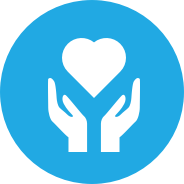
Mayotte
-
Cyclone Chido
Top articles
2024-10-25T16:34:00+02:00
Story
Meet Ximena Canal, the Researcher Working on Social Media and People on the Move in Latin America
2024-06-20T11:25:00+02:00
Story
World Refugee Day 2024
2024-04-25T00:00:00+02:00
Story
Girls in ICT Day: An Interview with Kristy Crabtree
2024-04-22T11:00:00+02:00
Story
How Climate Change Exacerbates Population Displacement
Top missions
2024
- Ongoing
Mayotte
Cyclone Chido
After the devastating passage of cyclone Chido, TSF is deploying to Mayotte to provide emergency communications to the affected populations and to coordinate relief operations.
2024
Grenada/Jamaica
Hurricane Beryl
On July 1, 2024, Hurricane Beryl caused extensive damage on the islands of St Vincent and the Grenadines and Grenada. Continuing its path through the Caribbean, it also hit Jamaica. Two TSF teams are on site to provide emergency telecoms support, in coordination with CDEMA and UNDAC.
2024
- Ongoing
Lebanon
Support for refugees and people displaced by the war
Since September 2024, clashes on the Lebanese-Israeli border have caused over 1,600 deaths and thousands of injuries, displacing 346,000 people in Lebanon. TSF is in the field to set up activities to support the people affected.
2022
- Ongoing
Ukraine/Poland/Romania
Emergency response for the populations affected by the war
In response to the war in Ukraine, a TSF team reached Ukraine’s neighbouring countries on 28 February.
2021
- 2023
Worldwide
Building regional emergency telecoms capacity
TSF is pleased to announce the start of a new project, funded by the Internet Society Foundation. This two-year project will build regional responders' capacity to recover emergency telecommunications in the most disaster-prone regions of the world.
2017
- Ongoing
Mexico/Guatemala/Colombia
Latin American migratory movement
TSF developed an information diffusion system for the protection of migrants in transit and asylum seekers in Mexico, Guatemala and Colombia.
Our current missions
6 missions accross 10 countries
Since 1998

20 million
beneficiaries

80+
countries

170+
major crises

850+
supported NGOs
Who we are
Télécoms Sans Frontières (TSF) was founded in 1998 as the world’s first NGO focusing on emergency-response technologies. During humanitarian crises we give affected people the possibility to contact their loved ones and begin to regain control of their lives, as well as we build rapid-response communications centres for local and international responders.
In parallel to this core activity, we also develop, adapt, and make available innovative and cost-effective solutions to assist migrants, refugees, displaced people and other disadvantaged communities in different areas, including education, healthcare, women’s rights and food security.
